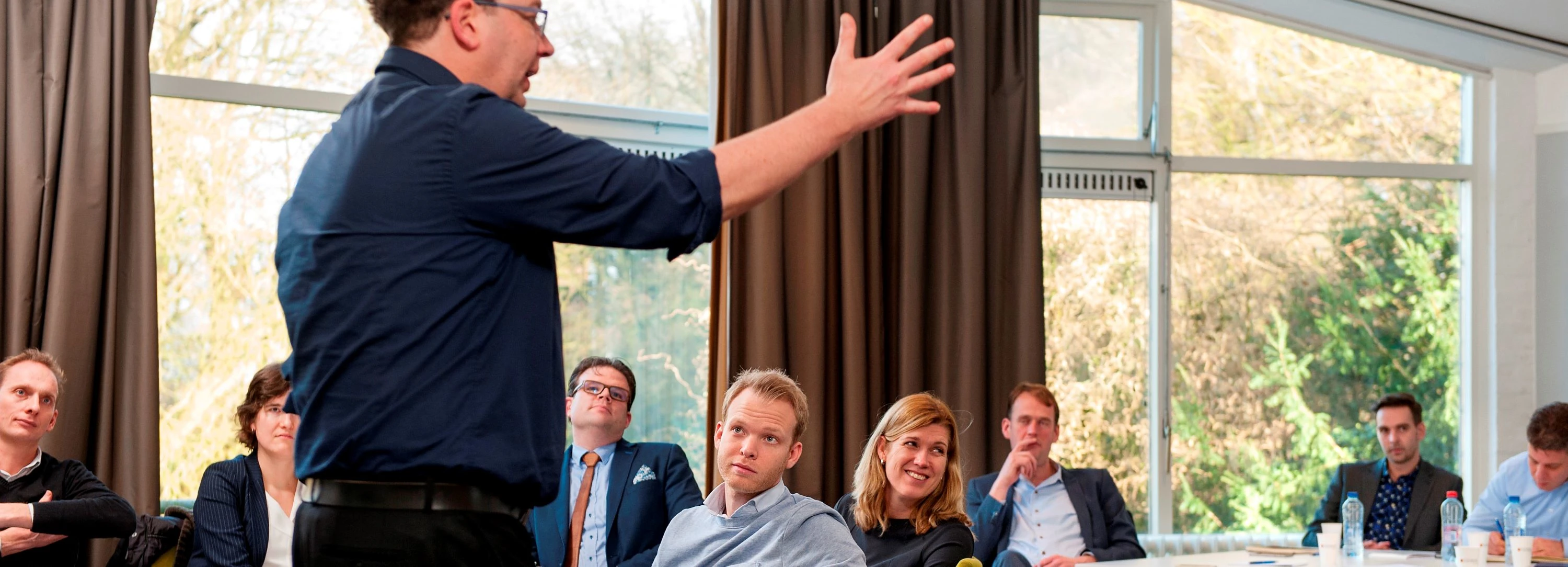What changes with respect to business-related and systemic risks can we expect to see in the area of corporate governance in the period ahead? And which practical change strategies can we use to respond accordingly? These were the key questions addressed during the symposium “The Evolving Role of Corporate Governance” organized by the Nyenrode Corporate Governance Institute. Various experts from the US, UK, Europe and the Netherlands shared their knowledge and best practices with over 100 practitioners and academics at Nyenrode Business University.
Changing expectations
Corporate governance is changing at a rapid pace. The relationship between corporate governance and systemic risks, such as climate change and social inequality, calls for a debate on changing expectations. This particularly applies to the shifting vision on the role of stakeholders. Examples include a new approach to corporate governance in the areas of finance, reporting and corporate law for businesses, investors and supervisory authorities. The urgency of this issue is reflected in the statement by the Business Roundtable, the statement by the World Economic Forum, the most recent letter from Larry Fink, and European plans and legislation related to financing sustainable growth, such as the European Green Deal, the Action Plan on Financing Sustainable Growth and the Non-financial Reporting Directive.
Experts from the Netherlands and abroad
Experts from the Netherlands and abroad approached the topic from various perspectives as they reflected on interdisciplinary developments at the intersection of corporate law, accounting and finance. The day’s speakers included professor Colin Mayer, professor Bob Eccles and Susanne Stormer, Vice President and Chief Sustainability Officer at Novo Nordisk.
Colin Mayer, a professor at Oxford University’s Saïd Business School, presented the conclusions of the British Academy’s recently published research report on the “Future of the Corporation”. Professor Mayer also discussed the reform of corporate governance to promote business objectives.
Bob Eccles, a professor at Oxford University’s Saïd Business School and previously at Harvard Business School, focused on the role of accounting standards and reporting. Based on the idea that non-financial information is actually pre-financial information, he emphasized the need to highlight both externalities and financial material risks in reports. He explained how existing standards for reporting can be adjusted.
How has purpose taken on a central role in the corporate governance debate, due in part to an increasingly turbulent world? Susanne Stormer showed how Novo Nordisk is focusing on this notion of purpose by creating a clear mission, using a foundation-based structure and introducing new elements into its bylaws.
Fons Leijten, a partner at Stibbe, argued that in the Netherlands the NV (a type of public company structure) is not seen as a contract, but as an institution. He demonstrated how this vision allows the responsibilities of executive and supervisory directors to be focused on the interests of the company and its associated business activities, while also giving rise to a system of checks and balances.
Eloy Lindeijer, Chief Investment Manager at PGGM, spoke to the attendees about long-term focus and stakeholder orientation from an investor’s perspective.
The symposium offered a broad perspective and concrete tools for everyone who feels involved in the corporate governance domain to achieve long-term value creation.
The symposium was organized with the support of Stibbe, the University of Groningen, Utrecht University, Maastricht University, Erasmus University and Eumedion.
Related programs
-
Digitalization and Boardroom Dynamics
Start date: 24 March 2026Language:- English
Location:- Breukelen
The module Digitalization and Boardroom Dynamics looks at technology's effect on the board. Part of the Modular Executive MBA Business & IT.
View program
